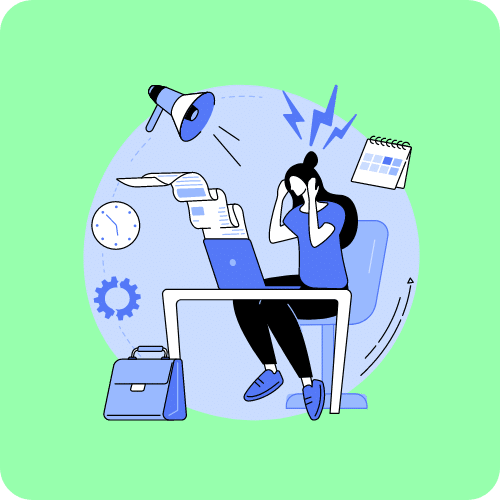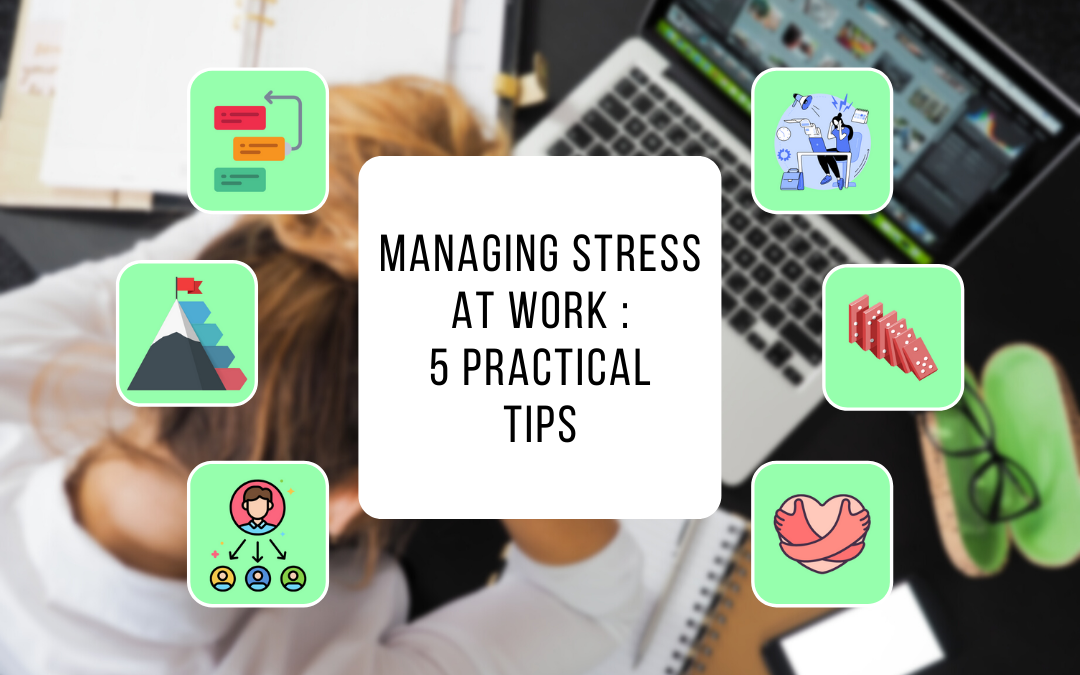Today’s hectic lifestyle can cause a mental workload at workThe consequences of this affect the emotions and generate stress. Solutions exist to help both employers and employees better manage this situation.
What are the main stressors at work?
Many factors can cause stress in the workplace. These may include a lack of organization or control, task overload, poor corporate culture, lack of motivation, etc.
Some causes are more subtle: for example, lack of recognition or support, too many demands on oneself, lack of participation in decision making, poorly distributed roles, lack of respect. Not to mention that many employees and managers find it difficult to balance work and personal responsibilities.


How do the physiological mechanisms of stress work?
When we think we perceive a threat, a signal is sent to the brain’s cortex. This one is transmitted to the limbic system, the seat of the primary cerebral reactions (protection, feeding, reproduction).
The information is then sent to the hypothalamus which generates hormonal messengers. These hormones, when released into the bloodstream, secrete adrenaline and act on the adrenal glands. The response to these natural physiological stimuli is stress.
What are the consequences of stress?
An ongoing state of stress can affect an individual at the physical, psychological and behavioral levels. Fatigue, muscle tension, insomnia, migraine, uncomfortable breathing are some of the physical consequences that affect the body when it is under pressure.
Irritability, anxiety, pessimism, lack of concentration, discouragement, even depression and burn-out are the psychological and physiological consequences of stress.
At the behavioral level, it has been observed that certain reactions can result from tensions at work: weak decision making and initiative, absenteeism, decreased performance, impatience with other employees or customers and obvious disinterest.
These manifestations are very often symptoms of poor stress management. When they are observed, it is essential to intervene as soon as possible to prevent the consequences from worsening over time.

A tool to reduce mental workload at work?
Simple and effective solutions to optimize stress management
When it comes to dealing with stress in the office, problem solving, conflict resolution, reorganization and changes in the work environment are often the first things that come to mind. These are avenues to consider, but whether you are an employer or an employee, you must first take care of your physical and mental health.
Here are 5 successfully tested solutions for preventing and managing stress in the workplace:
1. Knowing how to take care of yourself
Eating a balanced diet as often as possible, staying hydrated and getting enough sleep, as well as making time for exercise, are the foundation for good health. Allow time for relaxation, too.


2. Sort tasks according to their priority level
Sometimes the number of different operations to be performed increases, which can be discouraging for those who have to perform them. By preparing a list of tasks by priority or urgency, they find more control and peace of mind.
3. Do not give in to the obsession with performance
It is a fact that the search for performance and productivity remains a challenge for any company. Obsessing about it is detrimental to mental health and defeats the purpose. The desire to succeed must remain positive, but you must learn not to make it a source of stress.


4. Agree to delegate some tasks
No one person can take over all the activities required in a company and carry them out successfully. Trying to meet this challenge is often one of the main sources of stress. Learning to delegate allows an employer or a department head to find more comfort at work. This good habit makes the team more efficient by contributing to each other’s development, which is another advantage.
5. Break large projects into stages
Looking at a project as a whole can make it much more stressful than it actually is. By breaking down the operations that make it up, it is easier to put things into perspective.
On an individual level, taking a step back to identify situations that cause pressure, taking breaks to recuperate, taking into account and using positive resources (constructive thinking, visualization, meditation…) contribute to lowering high stress levels.
Encouraging activities that bring well-being (a sport, a craft activity, gardening, volunteering) helps to take one’s mind off things and release tension. Learning to rest is a key to countering stress and promoting good sleep.
As you can see, there are many ways to solutions available to you to manage and reduce the mental workload at work. The benefits of applying them are numerous, in terms of more effective management, optimized productivity and the personal satisfaction felt when stress is well managed.

